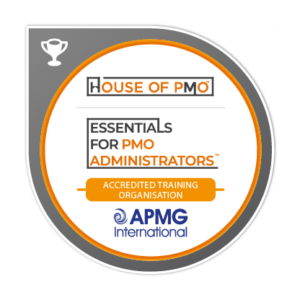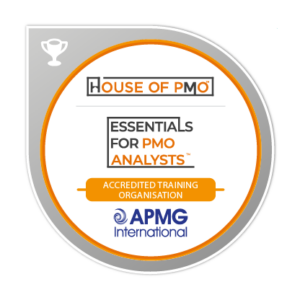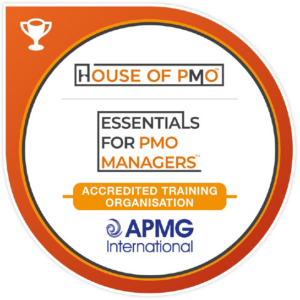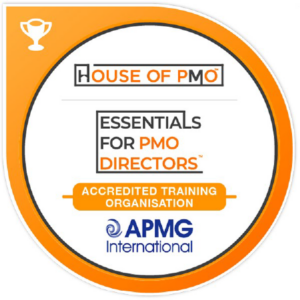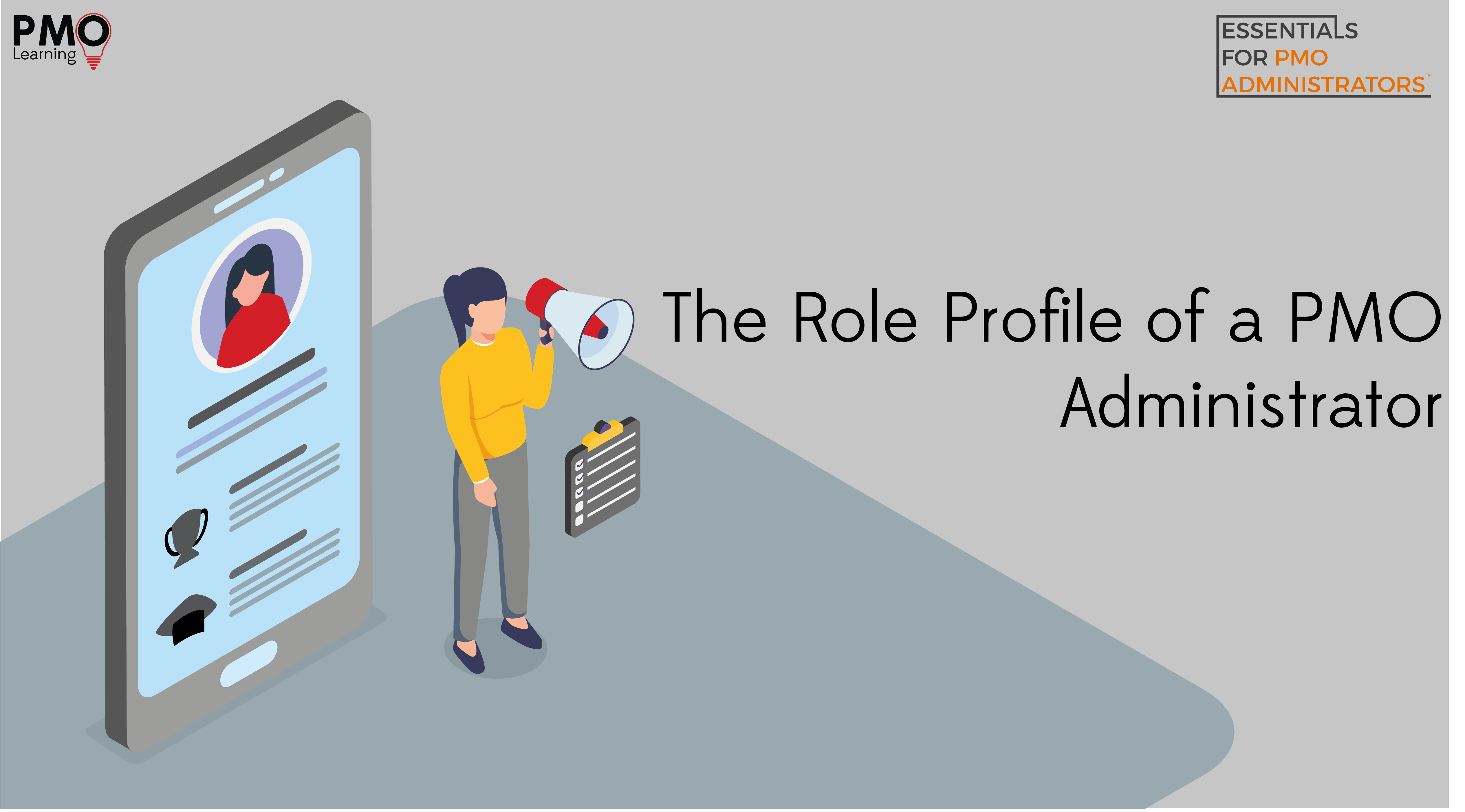
We’re going to be taking a closer look at the role profile of the PMO Administrator, as outlined by the Essentials for PMO Administrators course and the PMO Competency Framework.
The PMO Competency Framework outlines four key PMO Roles – the PMO Administrator, the PMO Analyst, the PMO Manager and the PMO Director. Each role may have a slightly different variation in title, for example the PMO Administrator may be referred to as a Project Support Officer, or Project Co-ordinator.
There are five key areas to each role profile – purpose, key responsibilities, key knowledge, key skills, and key behaviours. Let’s take a look at each aspect in turn.
Purpose
The purpose of the PMO Administrator role is to support the Project, Programme or Portfolio Manager and their team in administrative and secretariat aspects.
Key Responsibilities
These administrative and secretariat aspects are crucial in providing a comprehensive administrative service. This service may include: assisting in setting up workshops, meetings, taking minutes, chasing actions, arranging travel, arranging quotations and purchases and managing adhoc queries.
However, the role does not just include organisational tasks, and PMO Administrators are often expected to complete more complex tasks such as ensuring all information and documentation is processed, maintained, monitored and filed, maintaining systems for recording costs, timesheets, purchases and expenses, co-ordinating the collation of reports and produce summary reports and packs and maintaining risks, actions, issues, change and dependency registers.
The variety within the role is one of the fantastic aspects of working in the PMO – at 9am you may be booking a meeting room, but at 1pm you may have a busy project status meeting which would require you to collate and present a number of reports, working closely with the wider PMO to ensure the project is on track.
Key Knowledge
The key knowledge required to perform sucessfully as a PMO Admininistrator is mainly transferable, from non-project roles. These may include:
- Applications and tools of the organisation (eg office systems, CRM/ERP systems, document management systems, P3M tools and HR systems)
- Boundaries of authority and responsibility
- Change and Delivery methods and associated controls from conception to benefits realization (eg MoP®, MSP®, PRINCE2®, Managing Benefits, MoR®, BBC, DSDM, Scrum, Lean, SAFe, DAD, PROSCI) and local tailoring
- Corporate language and communication, culture (including risk and change appetite, organization politics), context and current priorities
- Corporate processes and procedures (and associated timings) relevant to delivery (eg Administration, Finance, HR, Procurement, Quality Management System)
- The organizations’ governance structure and who’s who (along with customer and supplier organizations as appropriate) and relationships between the parties
- Who to contact for what (internally and externally)
This is why the PMO Administrator is the perfect entry-level role for those looking to get started in their PMO career, or those looking to get involved in project environments. Much of this knowledge can be transferred from outside of a project environments to become applicable to the context of the PMO.
Key Skills
The key skills of the PMO Administrator can be categorised into six groupings, which we’ll look at in more detail below.
- Self
- Balance competing needs and interests – the ability to assess the needs and interests of multiple stakeholders and determine an optimal course of action.
- Follow – the ability to undertake a course of action or behaviours as directed or demonstrated by another.
- Time Management – the ability to organise and plan how you divide time effectively between various activities.
- Thinking
- Interview – the ability to ask questions in a structures format to get information.
- Learn – the ability to gain knowledge or skills by study, instruction, or experience.
- Relationships
- Customer service – the ability to provide effective service to a customer, flexing one’s approach to the personality of the customer.
- Engage – the ability to make a connection with another person for the purpose of communication or collaboration.
- Problem Solving
- Monitor – the ability to observe and check progress or quality over time in a structured way, without impacting the operation or condition.
- Prioritise – the ability to determine the appropriate order in which to deal with items or tasks according to their relative urgency and importance.
- Reviewing – the ability to formally assess something with the intention of making changes if necessary.
- Collaboration
- Network – the ability to develop relationships with social and professional contacts for mutual benefits.
Key Behaviours
The Essentials for PMO Administrators course and the PMO Competency Framework outline six key behaviours for the role of the PMO Administrator:
- Pay attention to detail, but be pragmatic – keep the bigger picture in mind
- Act with discretion and integrity, maintaining an appropriate level of confidentiality
- Be open and honest, take time to build relationships, credibility, and trust
- Take ownership of tasks and complete promptly, keeping customer up to date of progress and task completion
- Be a team player, being a role model for the core values and behaviours of the organisation
- Recognise the limits of your expertise and continue to develop your knowledge and skills
Where can I find out more?
If you’re looking to find out more about the PMO Administrator role, or any of the other PMO roles, the PMO Competency Framework provides the purpose, key responsibilities, key knowledge, key skills, and key behaviours of each role, as well as allowing readers to establish your competency is by completing a self-assessment using the PMO Competency Framework – find out how to use the framework to develop here!
Alternatively, why not join us on the Essentials for PMO Administrators certification course? This three day course helps delegates to gain the essential knowledge and understanding to undertake the role of a PMO Administrator, demonstrate a greater understanding of projects, programmes, portfolios and the PMOs and understand and articulate the core roles and responsibilities of a PMO Administrator role.
The MoP® courses on this page are offered by PMO Learning. MoP® is a [registered] trade mark of AXELOS Limited. MoP® is a registered trade mark of AXELOS Limited, used under permission of AXELOS Limited. All rights reserved.
Enjoying Our Blog?
Sign up and receive all our articles (we’ll send you an update once a week!) plus special offers and events:
This post contains affiliate ad links.





